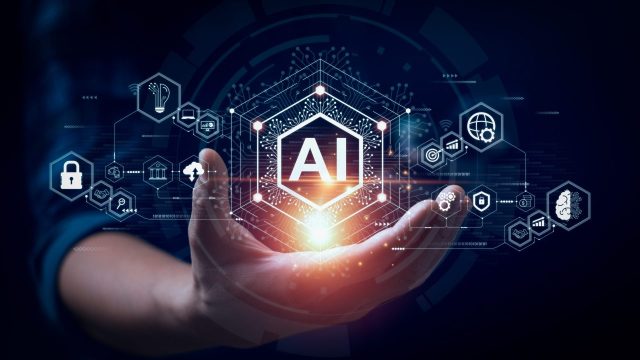The impact of artificial intelligence (AI) on education is a widely discussed topic, with some educators expressing fear, suspicion, and even panic. Despite these concerns, many schools have chosen to prohibit the use of machine learning in classrooms instead of leveraging its capabilities and welcoming its integration.
Whether educators like it or not, AI has already emerged as a transformative force, and those who fail to grasp the advantages and disadvantages of this cutting-edge technology will risk falling behind. Education’s future must revolve around adaptability, adoption, and evolution, making the incorporation of AI a natural progression in this ongoing journey.
Similar to how the advent of the internet and smartphones in the early 1990s revolutionized global communication, AI represents the next significant wave of innovation poised to reshape the world in ways beyond current imagination. Disregarding or outright banning AI is myopic and unsustainable.
AI technology empowers computers and digital devices to rapidly learn, read, write, create, and analyze information. While not flawless, AI can process data and generate content by utilizing data sourced from the internet or input into specialized tools known as generative pre-trained transformers, commonly referred to as GPTs.
Educators’ valid concerns regarding AI implementation encompass issues such as academic dishonesty, reduced human interaction, job insecurity, equity challenges, and safety risks. However, regardless of these risks, AI’s permanence is inevitable, and attempting to ban it entirely would be futile. Teachers should prioritize swiftly acquiring knowledge about AI to effectively navigate its integration.
A recent survey conducted by EdWeek Research Center revealed that two-thirds of K-12 educators have never utilized AI-driven tools in their classrooms. Among them, 37% expressed no intention of adopting AI tools, while 29% planned to incorporate this technology in the future.
Meanwhile, OpenAI’s ChatGPT, a language tool powered by machine learning, achieved remarkable user growth, attracting 100 million active users within two months of its launch in January.
The prevailing message emphasizes that schools should not enforce bans on AI. Instead, educators should educate students on responsibly adapting to this new technological landscape, guiding them in distinguishing between ethical and unethical AI applications.
Prohibiting AI in educational settings is as illogical as instructing students in the 1990s to disregard the internet and rely solely on traditional library research methods. Embracing AI is essential for navigating the complexities of the modern world effectively.
In the forthcoming years, students must develop the ability to discern between accurate and misleading information, while employers will prioritize hiring individuals with critical thinking skills capable of integrating AI into the workplace seamlessly.
The workforce of the future will consist of companies whose employees adeptly operate in AI-driven environments, while organizations resistant to change may face obsolescence. Therefore, American schools have a responsibility to educate students about AI to prepare them for the evolving job market.
AI should not be viewed as a replacement for human intellect but rather as a valuable tool for tasks like content creation and data analysis. It is imperative to educate students on the ethical and safe utilization of AI, considering its potential dangers and benefits.
Education no longer solely revolves around rote memorization, given the accessibility of information online. However, students still require guidance and structured learning experiences in various educational domains.
The reluctance of the newspaper industry to embrace the internet’s potential in the 1990s serves as a cautionary tale. Failure to adapt swiftly led to significant layoffs and revenue loss as advertising shifted online. Schools must avoid a similar fate by embracing AI to enhance productivity and efficiency in education.
Educators must determine the appropriate curriculum for teaching students about AI, as disregarding this innovation would be shortsighted. Establishing guidelines and educating students on responsible AI usage is crucial, considering that children will inevitably interact with AI technology.
Education plays a vital role in equipping the next generation for the evolving world and workforce. It is essential for American schools to prepare students adequately for the technological advancements that lie ahead.
Evan Nierman, the founder and CEO of the crisis communications firm Red Banyan, is also the author of “Crisis Averted” and “The Cancel Culture Curse: From Rage to Redemption in a World Gone Mad.”
Copyright 2024 Nexstar Media Inc. All rights reserved. This material may not be published, broadcast, rewritten, or redistributed.










